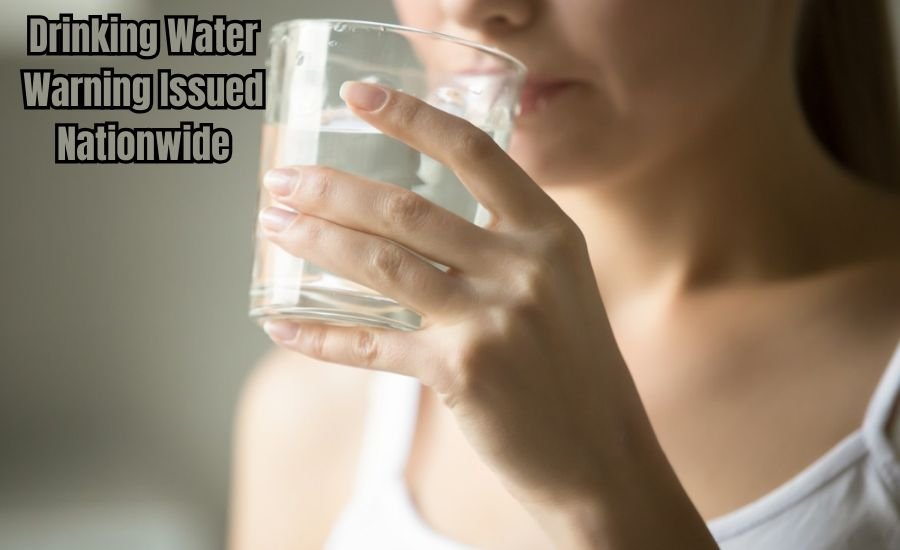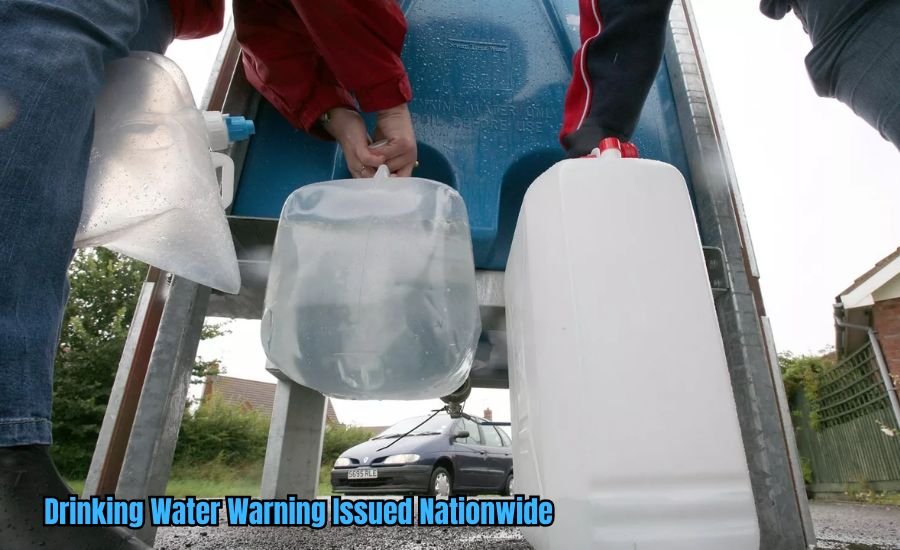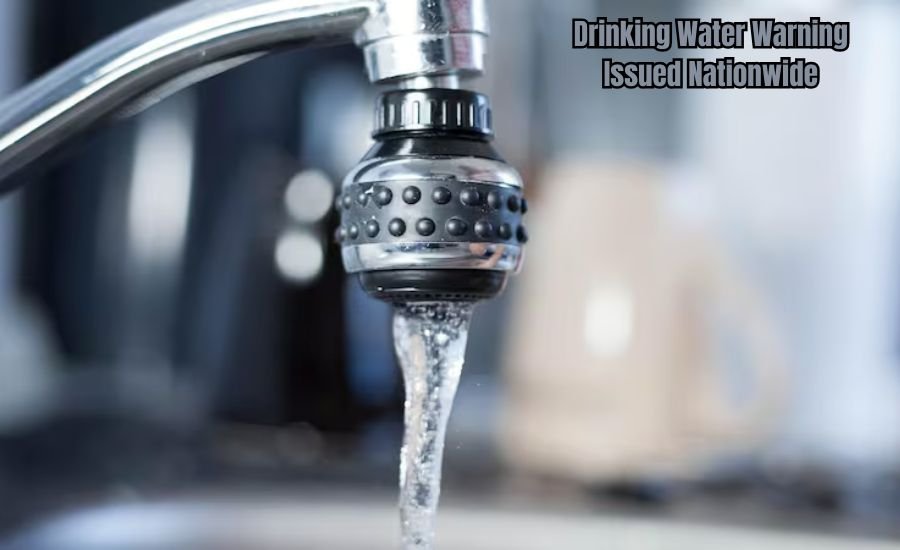Welcome to TECH DENSER, where we bring you the most crucial updates on public health and safety. Recently, a significant drinking water warning issued nationwide has captured the attention of health officials, government agencies, and communities alike. This alert stems from new findings on the vulnerabilities in the nation’s water systems, highlighting potential risks to water quality. In this article, we will dive into the reasons behind this nationwide warning, explore its implications for public health, and outline practical steps for protecting yourself and your loved ones.
Understanding the Nationwide Drinking Water Warning
The drinking water warning issued nationwide reflects concerns about the safety of drinking water due to rising cybersecurity threats to water utilities. The Environmental Protection Agency (EPA) has reported that over 60% of water systems are not fully protected, leaving them open to potential tampering and contamination.
Why the Drinking Water Warning Matters
A safe Drinking Water Warning Issued Nationwide supply is essential for maintaining public health. The EPA’s warning is a response to the discovery of vulnerabilities in water utilities’ security measures, which could be exploited by cyber threats or accidental breaches. Key points that highlight the urgency of this warning include:
- Increased Cybersecurity Threats: The potential for cyberattacks targeting water utilities has been growing. A successful attack could disrupt treatment processes, leading to unsafe water.
- Public Health Concerns: Compromised water quality can lead to outbreaks of waterborne illnesses, which could affect millions.
- Impact on Daily Life: Unsafe water has a direct impact on basic hygiene, cooking, and drinking, emphasizing the need for prompt action.
Health Risks Linked to Unsafe Drinking Water
Cybersecurity issues within water utilities can pose several direct health risks if water becomes contaminated. Here are some of the primary concerns related to unsafe drinking water:
- Chemical Imbalances: Errors in treatment chemicals, such as chlorine or fluoride, could create water that is unsafe to consume.
- Harmful Microorganisms: If water systems fail, there’s an increased risk of pathogens like E. coli, which can lead to serious illness.
- Community-Wide Effects: The health of entire communities can be compromised, affecting vulnerable groups, such as children and the elderly, the most.
Key Drivers Behind the Drinking Water Warning Issued Nationwide

Cybersecurity Vulnerabilities in Water Utilities
The drinking water warning issued nationwide stems from specific cybersecurity weaknesses identified in water systems. Reports indicate that many utilities are under-protected against modern cyber threats, leaving public water supplies at risk. Major issues contributing to this vulnerability include:
- Outdated Security Measures: Many utilities rely on legacy software systems that are vulnerable to cyber intrusions.
- Default and Weak Passwords: Poor password practices make it easier for hackers to infiltrate and control systems.
- Lack of Regular Security Audits: Insufficient monitoring means that vulnerabilities are not identified and fixed quickly.
International Threats to Water Infrastructure
The EPA’s drinking water warning issued nationwide has also been fueled by rising international threats. According to reports, cyber groups from countries like Russia, China, and Iran have attempted to gain unauthorized access to U.S. water infrastructure.
Notable Cyber Groups and Their Tactics
The following groups have been implicated in attacks or attempted infiltrations on U.S. water systems:
- APT 10 (China): This group has targeted critical infrastructure, including water facilities, by embedding malware.
- Sandworm (Russia): Known for its attacks on energy and water systems, Sandworm’s methods are highly sophisticated.
- APT 33 (Iran): With a focus on causing economic damage, this group has targeted small utilities to gain access and disrupt services.
EPA Guidelines to Protect Water Quality Amid the Drinking Water Warning
In response to the drinking water warning issued nationwide, the EPA has established guidelines to help utilities improve their security. By following these recommendations, water providers can better protect the public from potential cyber threats and ensure the quality of Drinking Water Warning Issued Nationwide remains high.
Key EPA Recommendations
The EPA’s guidelines are designed to be comprehensive, focusing on both prevention and response. Here’s an overview of the measures utilities are being urged to implement:
- Strengthen Password Security: Requiring unique, complex passwords reduces the risk of unauthorized access.
- Implement Regular Cybersecurity Assessments: These assessments can help identify and address potential vulnerabilities in real-time.
- Develop Reliable Backup Systems: In the event of a breach, backup systems can help restore safe water services quickly.
Challenges in Implementation
Although the EPA’s guidelines are necessary, many smaller utilities face challenges in implementing them. Limited budgets, outdated technology, and a lack of trained personnel can make it difficult for some providers to adopt these changes swiftly.
Hope you find this interesting: Pierre de Biigaau Muco
How TECH DENSER Readers Can Protect Their Water Supply

While government agencies work to mitigate cybersecurity threats, individuals also play a role in ensuring their water’s safety. Here are some actionable steps you can take to stay informed and prepared amid the drinking water warning issued nationwide.
Practical Steps for Monitoring Water Quality
- Stay Updated on Local Alerts: Monitoring your city or state’s water quality reports can help you react promptly if issues arise.
- Install Home Filtration Systems: Quality filters can provide an added layer of safety, particularly in high-risk areas.
- Get Involved in Community Advocacy: Supporting local initiatives for better water security can lead to safer practices on a larger scale.
Emergency Steps if a Water Warning is Issued
In the event that a Drinking Water Warning Issued Nationwide advisory is announced, follow these immediate steps to protect yourself and your family:
- Switch to Boiled or Bottled Water: Boiling can eliminate many contaminants, while bottled water is a reliable alternative.
- Follow Local Health Department Guidelines: Officials may provide specific advice based on the type of contamination.
- Keep Water Stored in a Safe Place: During advisories, avoid storing water in exposed areas where contaminants could enter.
Federal Initiatives for Enhanced Water Security
Federal Funding for Water Security Upgrades
To support the necessary cybersecurity improvements, the federal government has increased funding for water infrastructure upgrades. By providing financial resources, federal programs are helping utilities adopt the latest security protocols in response to the drinking water warning issued nationwide.
Proposed Regional Cybersecurity Centers
To further aid utilities, lawmakers are proposing regional cybersecurity centers that focus on critical infrastructure, including water systems. These centers would provide continuous monitoring and emergency support, particularly for smaller utilities that lack their own dedicated cybersecurity teams.
Benefits of Public-Private Partnerships
Collaborative efforts between government agencies and tech companies can enhance water security measures by combining resources and expertise. Through these partnerships, utilities gain access to advanced technologies and data analytics that strengthen water systems.
Conclusion
The drinking water warning issued nationwide underscores the importance of a secure water supply and the impact of cybersecurity on public health. By addressing vulnerabilities and adopting advanced security protocols, water providers, government agencies, and communities can work together to reduce risks. At TECH DENSER, we encourage our readers to stay informed and proactive in advocating for a safe, reliable water system. Simple steps like using home filtration and monitoring local alerts can help keep your household safe amid rising concerns.
FAQs
Q: What is the main reason for the drinking water warning issued nationwide?
A: The warning highlights cybersecurity vulnerabilities within water utilities that could compromise the safety of drinking water.
Q: How can a cyberattack affect drinking water quality?
A: Cyberattacks may lead to chemical imbalances, contamination, or interruptions, posing a health risk if not addressed promptly.
Q: What steps can individuals take to protect themselves?
A: Stay updated on local advisories, consider using a home water filter, and follow recommendations from health authorities during any water warning.
Stay in touch to get more updates on TECH DENSER




